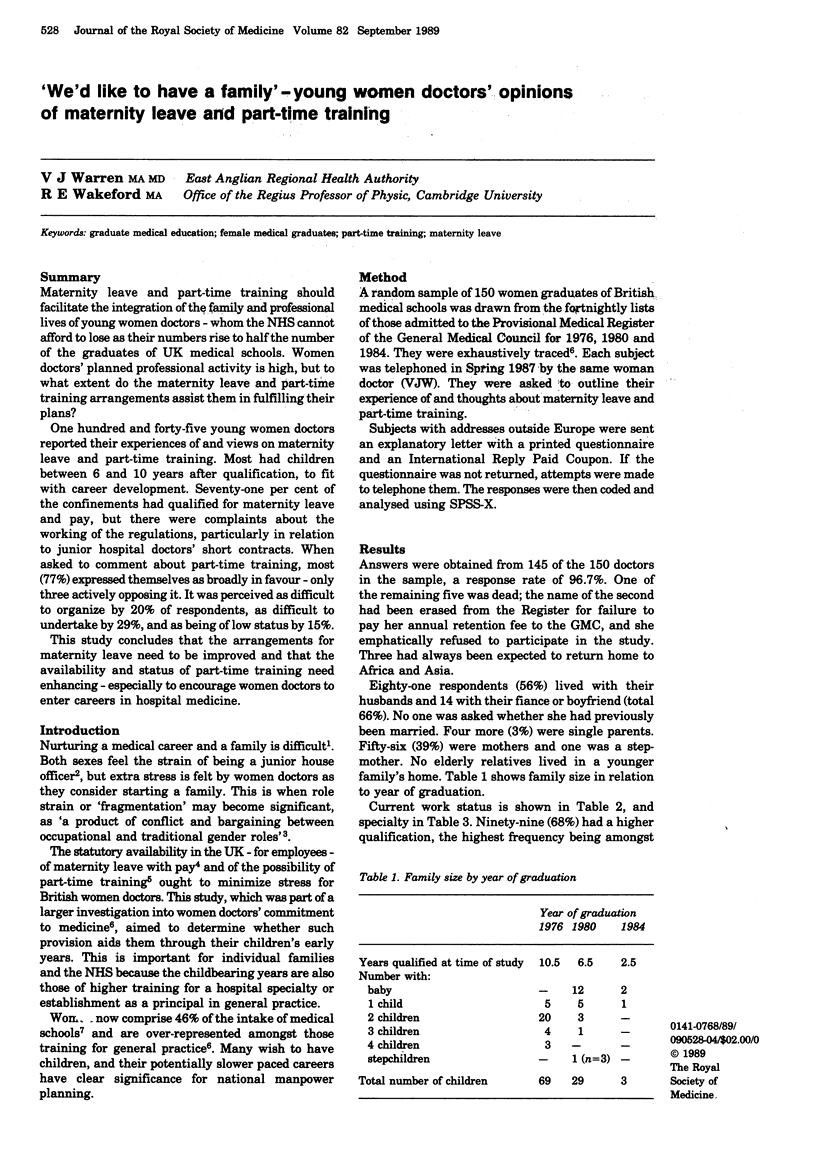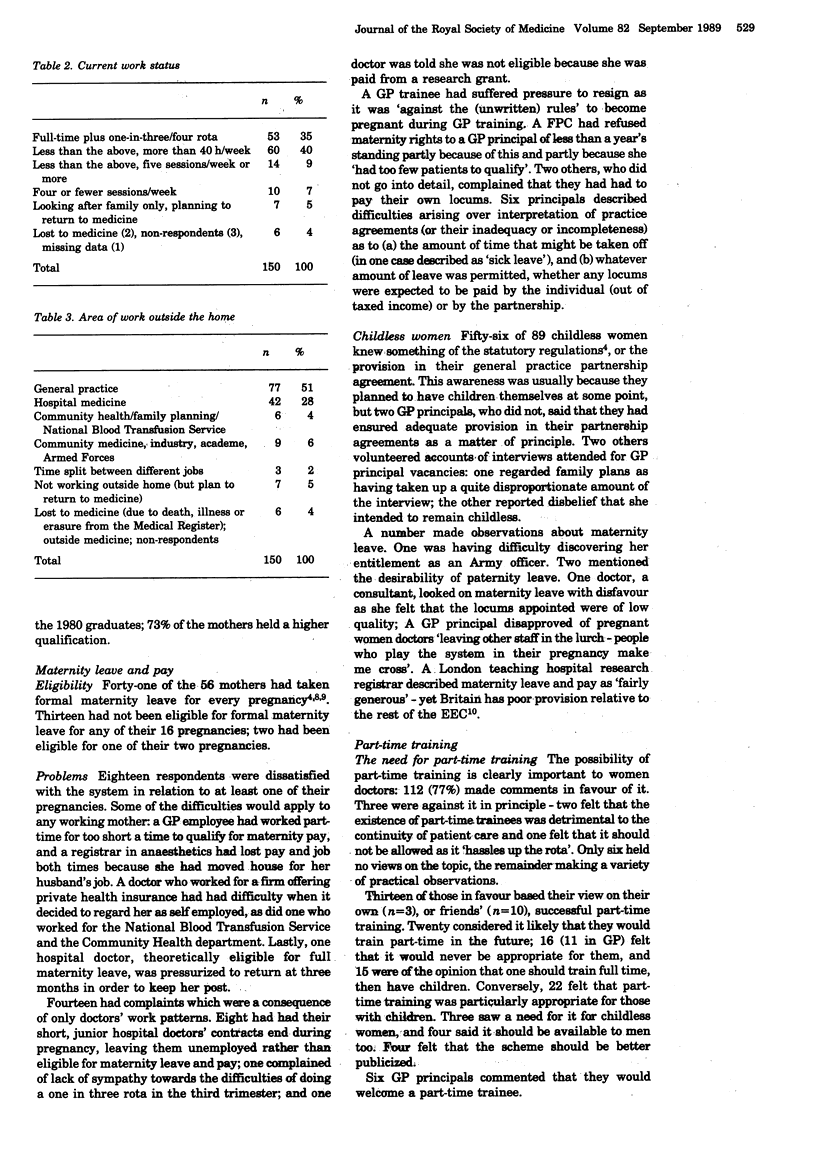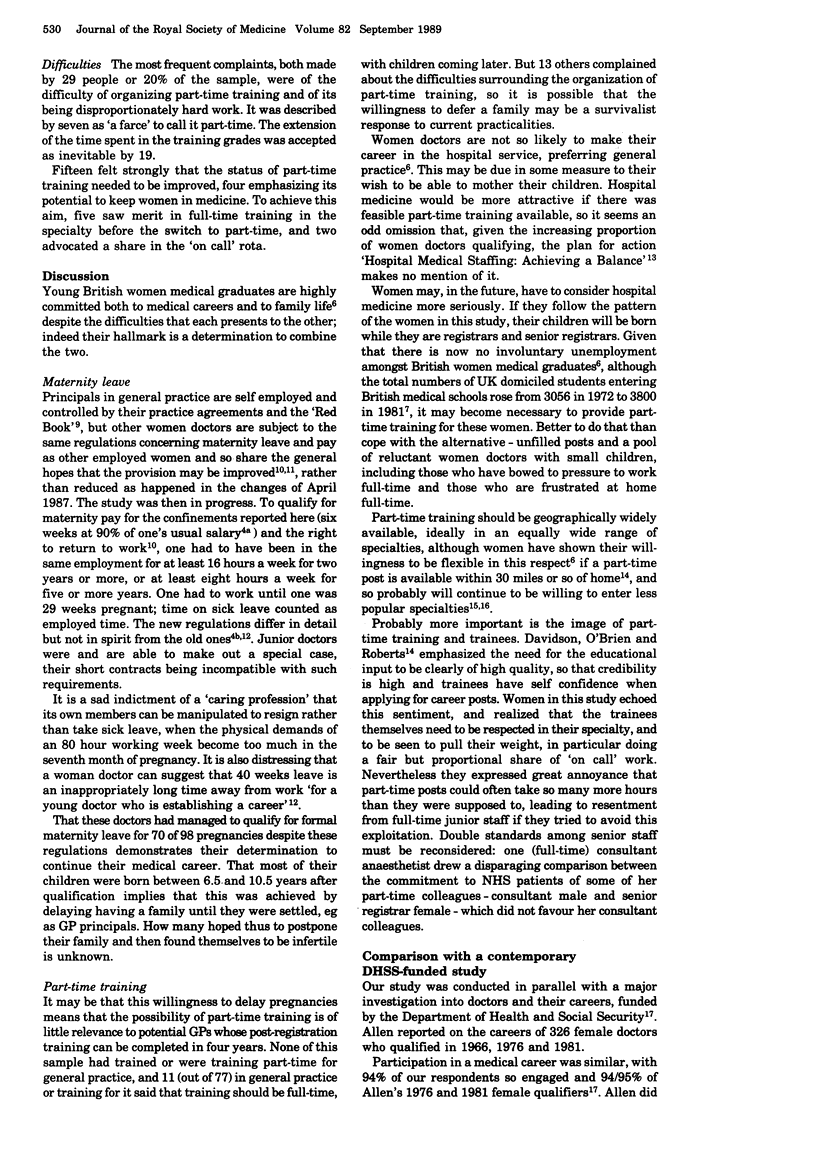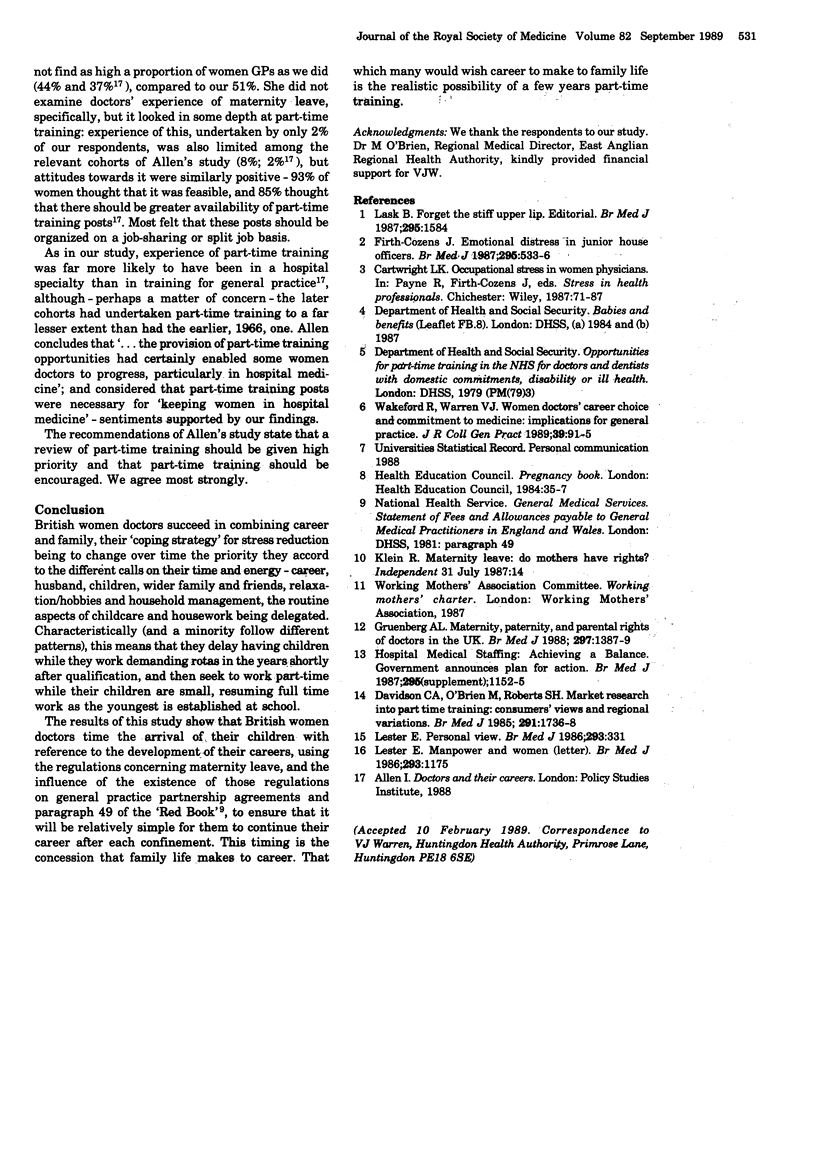Abstract
Maternity leave and part-time training should facilitate the integration of the family and professional lives of young women doctors - whom the NHS cannot afford to lose as their numbers rise to half the number of the graduates of UK medical schools. Women doctors' planned professional activity is high, but to what extent do the maternity leave and part-time training arrangements assist them in fulfilling their plans? One hundred and forty-five young women doctors reported their experiences of and views on maternity leave and part-time training. Most had children between 6 and 10 years after qualification, to fit with career development. Seventy-one per cent of the confinements had qualified for maternity leave and pay, but there were complaints about the working of the regulations, particularly in relation to junior hospital doctors' short contracts. When asked to comment about part-time training, most (77%) expressed themselves as broadly in favour - only three actively opposing it. It was perceived as difficult to organize by 20% of respondents, as difficult to undertake by 29%, and as being of low status by 15%. This study concludes that the arrangements for maternity leave need to be improved and that the availability and status of part-time training need enhancing - especially to encourage women doctors to enter careers in hospital medicine.
Full text
PDF



Selected References
These references are in PubMed. This may not be the complete list of references from this article.
- Davidson C. A., O'Brien M., Roberts S. H. Market research into part time training: consumers' views and regional variations. Br Med J (Clin Res Ed) 1985 Dec 14;291(6510):1736–1738. doi: 10.1136/bmj.291.6510.1736. [DOI] [PMC free article] [PubMed] [Google Scholar]
- Firth-Cozens J. Emotional distress in junior house officers. Br Med J (Clin Res Ed) 1987 Aug 29;295(6597):533–536. doi: 10.1136/bmj.295.6597.533. [DOI] [PMC free article] [PubMed] [Google Scholar]
- Grüneberg A. L. Maternity, paternity, and parental rights of doctors in the UK. BMJ. 1988 Nov 26;297(6660):1387–1389. doi: 10.1136/bmj.297.6660.1387. [DOI] [PMC free article] [PubMed] [Google Scholar]
- Lask B. Forget the stiff upper lip. Br Med J (Clin Res Ed) 1987 Dec 19;295(6613):1584–1585. doi: 10.1136/bmj.295.6613.1584. [DOI] [PMC free article] [PubMed] [Google Scholar]
- Wakeford R. E., Warren V. J. Women doctors' career choice and commitment to medicine: implications for general practice. J R Coll Gen Pract. 1989 Mar;39(320):91–95. [PMC free article] [PubMed] [Google Scholar]


